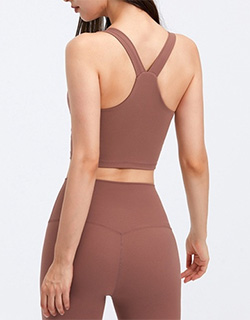How to Design Custom Sports Hoodies That Athletes Love
Introduction
In sportswear, a good hoodie is more than just clothing. It shows performance, style, and comfort. Athletes and fitness fans like hoodies that look good. They also want hoodies that help them move, keep them dry, and last through tough workouts.
For brands, offering custom sports hoodies is a great way to build brand identity. It helps engage loyal customers and stand out from competitors. This guide will help you design hoodies that athletes really love. It covers fabric choice, functionality, logos, and manufacturing.
1. Understand Your Target Athletes
Before you start designing, you need to know who will wear your hoodies. Different sports and athletic activities have unique requirements:
• Running & Cardio: Lightweight, breathable, moisture-wicking fabrics, slim fits, reflective details for safety.
• Gym & Strength Training: Flexible, durable material with stretchable panels for movement and comfort.
• Outdoor Sports: Hoodies with weather-resistant fabrics, secure pockets, and hood adjustments.
Consider age, gender, and fitness level. A hoodie for a young male runner may differ in style and fit from a hoodie for a female yoga practitioner. Collect feedback through surveys, focus groups, or social media to understand athlete preferences.
2. Choose the Right Fabric
The fabric is the foundation of any sports hoodie. Athletes demand comfort, performance, and durability. Consider these options:
• Performance Fabrics: Polyester blends, moisture-wicking, breathable, quick-dry, and anti-odor properties.
• Comfort Fabrics: Cotton-polyester blends, French terry, soft brushed fabrics. Perfect for casual wear or recovery days.
• Sustainable Options: Recycled polyester or organic cotton for eco-conscious athletes.
Tip: Combine fabrics for a hoodie with panels of performance material in high-sweat areas and softer fabrics elsewhere.
Tip: Combine fabrics for a hoodie with panels of performance material in high-sweat areas and softer fabrics elsewhere.
3. Design for Functionality and Style
Athletes want hoodies that look good and move with them. Design considerations include:
• Fit & Cut: Raglan sleeves for free movement, adjustable hoods, and athletic fit to enhance performance.
• Functional Features: Zippered pockets, thumbholes, ventilation panels, reflective stripes for safety during night runs.
• Style & Brand Identity: Color combinations, patterns, and logo placement that match your brand and appeal to athletes.
• Trendy Touches: Oversized or cropped fits, streetwear influences, minimalistic branding for premium feel.
4. Logo and Decoration Techniques
Your logo is the most visible aspect of your brand. Choosing the right decoration method ensures it looks professional and lasts:
• Embroidery: Premium texture, durable, ideal for minimalistic or high-end collections.
• Screen Printing / Heat Transfer / DTF: Detailed, full-color designs, suitable for bulk or limited editions.
• Silicone or Rubber Badges: Adds a sporty, 3D effect to hoodies.
Tip: Match decoration methods to your target athlete and hoodie style. Performance-heavy hoodies may require lightweight prints, while casual or lifestyle hoodies can handle textured embroidery.
5. Create Perfect Prototypes
Prototyping is critical for producing hoodies athletes will love:
• Produce pre-production samples to evaluate fit, fabric behavior, and design details.
• Gather feedback from athletes or focus groups to identify adjustments.
• Test functionality: Are pockets convenient? Do thumbholes stay in place? Does the hoodie dry quickly during workouts?
Small-batch trial runs reduce risk and ensure that bulk production meets expectations.
6. Work with Experienced Manufacturers
The right manufacturer turns your design into a high-quality product:
• Experience Matters: Look for factories that specialize in sportswear and understand technical fabrics.
• Customization & Flexibility: Choose partners who offer OEM/ODM services, rapid sampling, and small minimum order quantities (MOQs).
• Quality Control: Ensure consistent stitching, durable finishes, and color accuracy.
• Timely Delivery: Confirm lead times that match your product launch schedule.
7. Highlight Key Selling Points
Once your hoodie design is finalized, communicate its unique benefits:
• Functionality: Breathable, stretchable, moisture-wicking, or weather-resistant.
• Comfort: Soft fabrics, perfect fit, smooth seams.
• Style & Trend: Eye-catching colors, branded designs, versatile for both sports and lifestyle.
• Sustainability & Customization: Eco-friendly materials or limited-edition releases.
Use professional photos, lifestyle shots, and detailed product descriptions to elevate your marketing and boost conversions.
Conclusion
Designing custom sports hoodies that athletes love needs careful attention to detail. You must understand your audience and choose the right fabrics. It is also important to design useful features and work with trustworthy manufacturers. By following these steps, your brand can make hoodies that offer performance, comfort, and style. This will help turn athletes into loyal customers.

